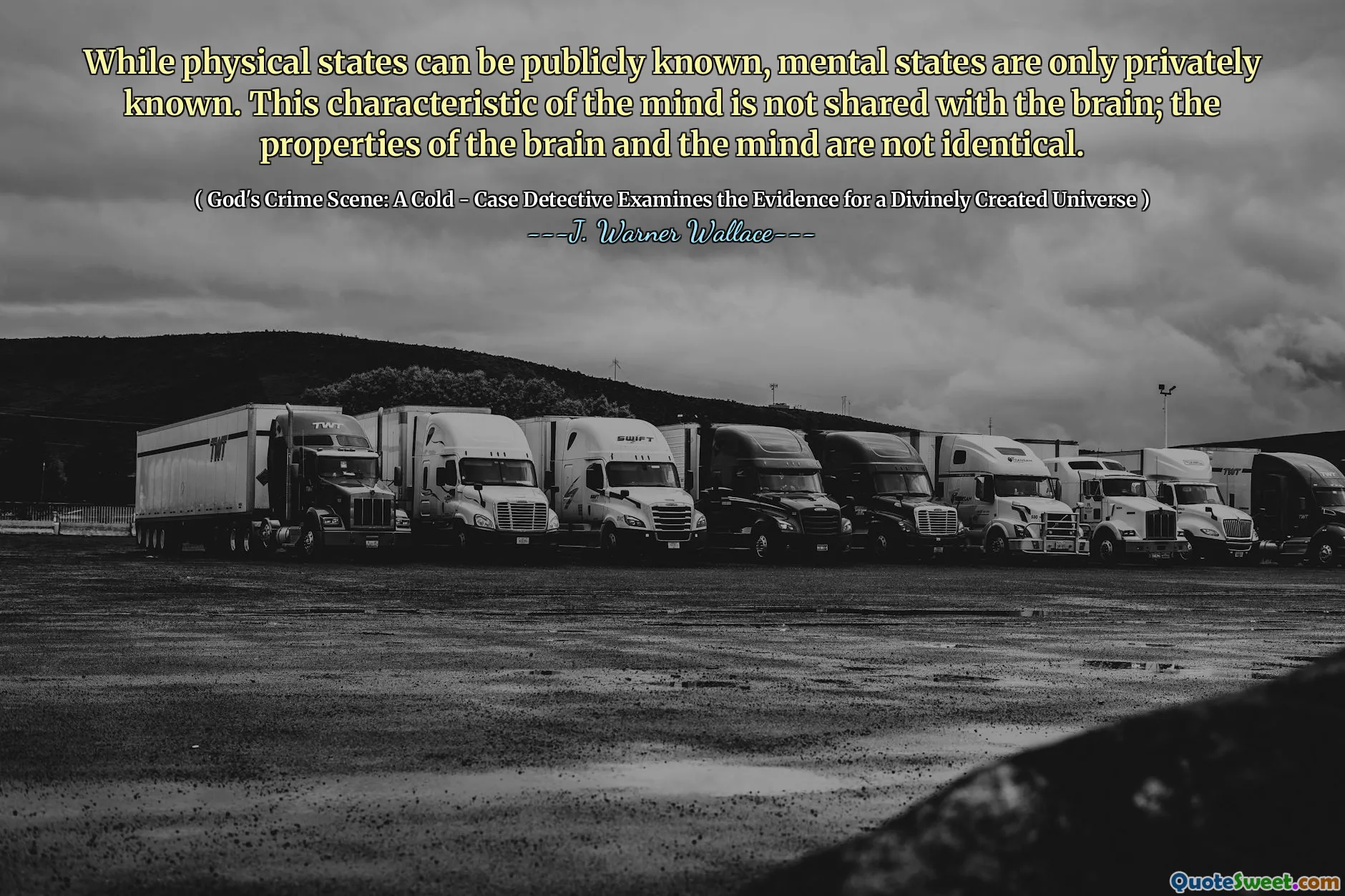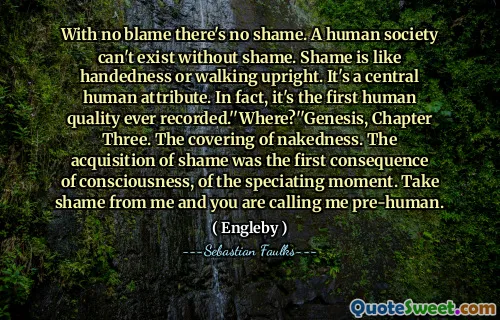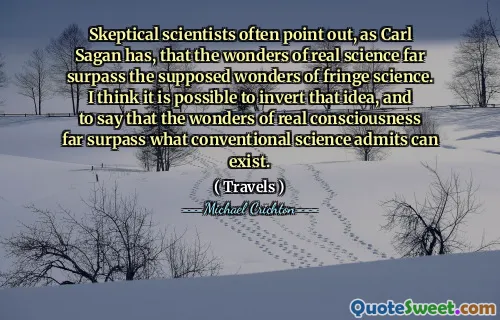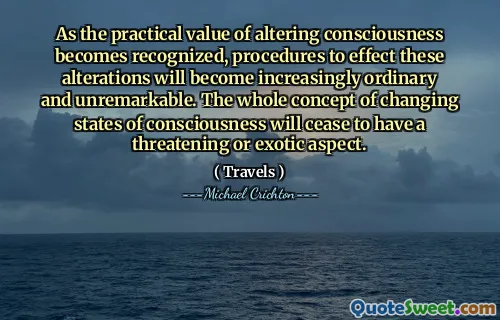
While physical states can be publicly known, mental states are only privately known. This characteristic of the mind is not shared with the brain; the properties of the brain and the mind are not identical.
This quote touches on one of the enduring questions in philosophy of mind and cognitive science: the nature of the relationship between the brain and the mind. It accentuates the distinction between the objectively observable nature of the brain's physical states and the inherently subjective, private nature of mental states. Physical states, such as neural activity, can be measured, observed, and shared among people through scientific instruments and consensus. On the other hand, mental states—thoughts, feelings, perceptions, and sensations—remain accessible only to the individual experiencing them.
The statement points to a fundamental challenge in understanding consciousness and the mind-brain problem. While the brain’s physical components can be dissected, analyzed, and replicated in studies, the mental experience—what philosopher Thomas Nagel famously called "what it is like" to be something—eludes this public accessibility. This difference suggests that the mind is not reducible solely to the brain’s physical properties.
This distinction has profound implications. It highlights the limits of scientific reductionism when grappling with the full nature of consciousness. The subjective quality of mental states—the first-person perspective—raises questions that material explanations alone may not sufficiently address. It also leads to debates about dualism, physicalism, and other frameworks that attempt to reconcile these differences.
In the context of the book, "God's Crime Scene," which investigates evidence for a divinely created universe, this quote might hint at the philosophical underpinnings for arguing that the mind possesses qualities that purely physical explanations cannot capture fully. The private, subjective nature of mental states could be seen as an indication of a reality beyond strict physicalism, perhaps favoring theism or dual-aspect theories.
Overall, the quote invites deeper reflection on the mysterious nature of consciousness and challenges us to consider how we can understand an inner mental realm that does not lend itself to external verification. It encourages appreciation for the complexity of human experience beyond what is captured by brain science alone, reminding us that reality holds dimensions still beyond the grasp of objective measurement.



